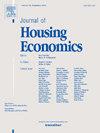Time to build: Rules-based planning and construction project duration in Dublin
IF 2.4
3区 经济学
Q3 ECONOMICS
引用次数: 0
Abstract
Housing is one of the most politically salient issues in high-income countries, with an increasing focus on the determinants and responsiveness of supply and on policy options such as upzoning and use-by-right. This paper examines the determinants of the duration between receiving planning consent and commencing construction (activation), and between commencing construction and completion of new housing units (build-out). A simple economic model, incorporating uncertainty around planning decisions as well as capital costs and payment structures, generates four propositions. These are then taken to a new and detailed database of 83,000 residential units across 5,300 proposed developments in Dublin, Ireland for the period 2018–2023, with rich information on project, site and firm characteristics. The setting includes a baseline discretionary planning system and two more rules-based planning codes for certain projects. We find empirical support for all four propositions from theory, including clear evidence that, where systems of land use regulation are more certain, activation times are shorter. These findings have considerable relevance for policies that seek to increase housing supply.
建造时间:都柏林基于规则的规划和建筑项目工期
住房是高收入国家政治上最突出的问题之一,人们越来越关注住房供应的决定因素和反应能力,以及诸如升级规划和按权使用等政策选择。本文考察了从获得规划许可到开始建设(激活),以及从开始建设到完成新住房单元(扩建)之间持续时间的决定因素。一个简单的经济模型,将规划决策、资本成本和支付结构的不确定性纳入其中,产生了四个命题。然后,这些数据被带到一个新的详细数据库中,该数据库包含2018-2023年期间爱尔兰都柏林5300个拟议开发项目的83,000个住宅单元,其中包含有关项目、场地和公司特征的丰富信息。该设置包括一个基线自由规划系统和针对某些项目的另外两个基于规则的规划代码。我们从理论中找到了对所有四个命题的实证支持,包括明确的证据表明,在土地使用监管系统更确定的地方,激活时间更短。这些发现对寻求增加住房供应的政策具有相当大的相关性。
本文章由计算机程序翻译,如有差异,请以英文原文为准。
求助全文
约1分钟内获得全文
求助全文
来源期刊

Journal of Housing Economics
Multiple-
CiteScore
3.30
自引率
4.20%
发文量
35
期刊介绍:
The Journal of Housing Economics provides a focal point for the publication of economic research related to housing and encourages papers that bring to bear careful analytical technique on important housing-related questions. The journal covers the broad spectrum of topics and approaches that constitute housing economics, including analysis of important public policy issues.
 求助内容:
求助内容: 应助结果提醒方式:
应助结果提醒方式:


